It’s no secret that the Annual Science Day has become a launchpad for the next generation of innovators, and this year’s event was no exception! Now in its 15th year, the day brought together students to present both individual and group projects that not only highlighted their expertise in science, ICT, and maths, but also provided creative solutions to some of today’s most pressing global challenges.
With nearly half the student body participating, many focused on pioneering renewable energy solutions like solar power and biogas, pushing us closer to a sustainable future.
Take a closer look at the remarkable projects from this year’s Science Day and see how these young innovators are shaping the world of tomorrow.
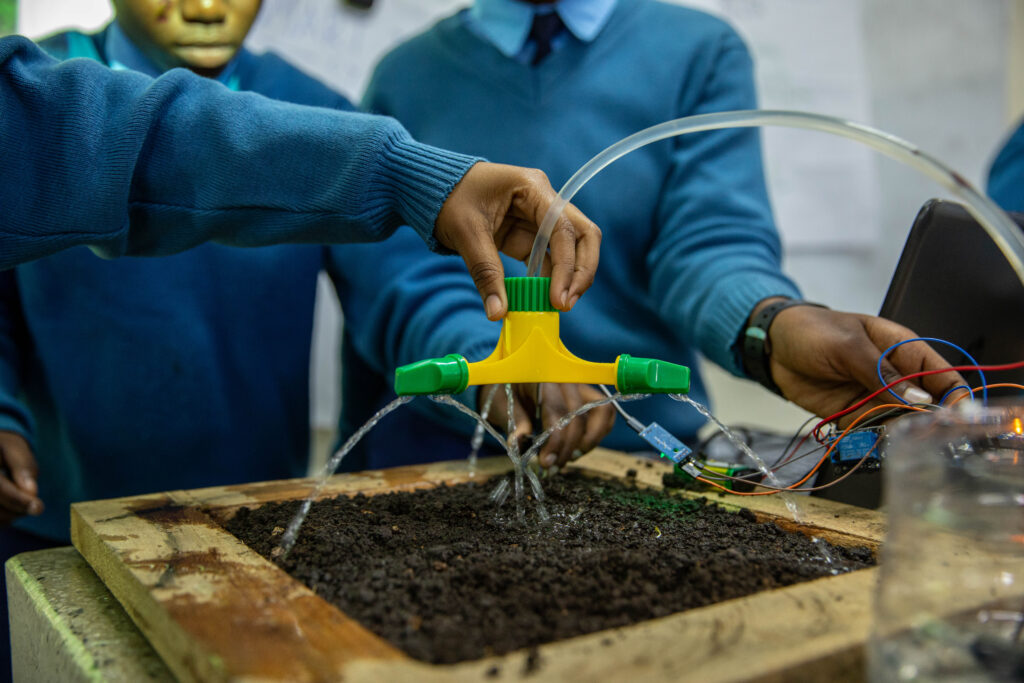
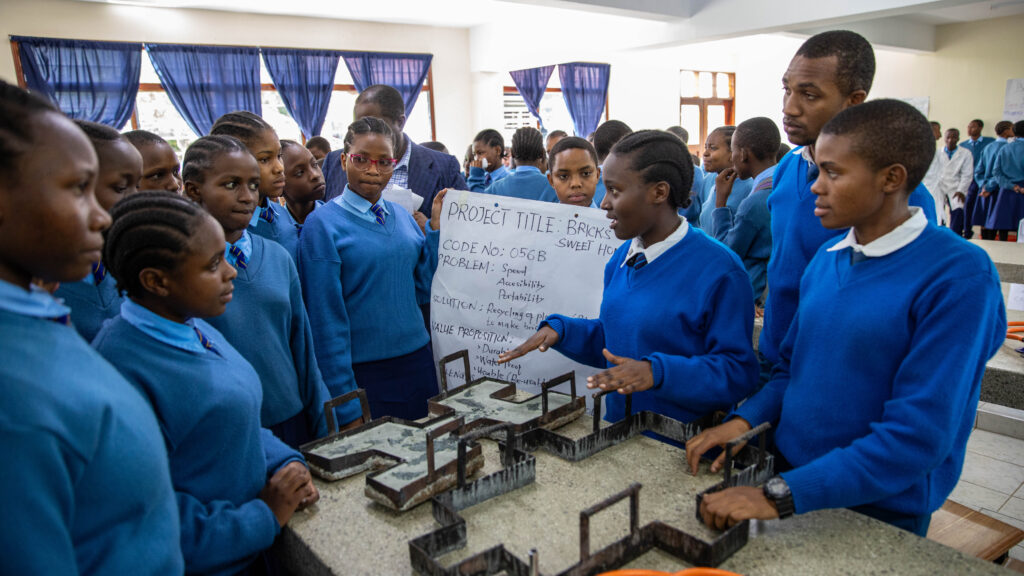
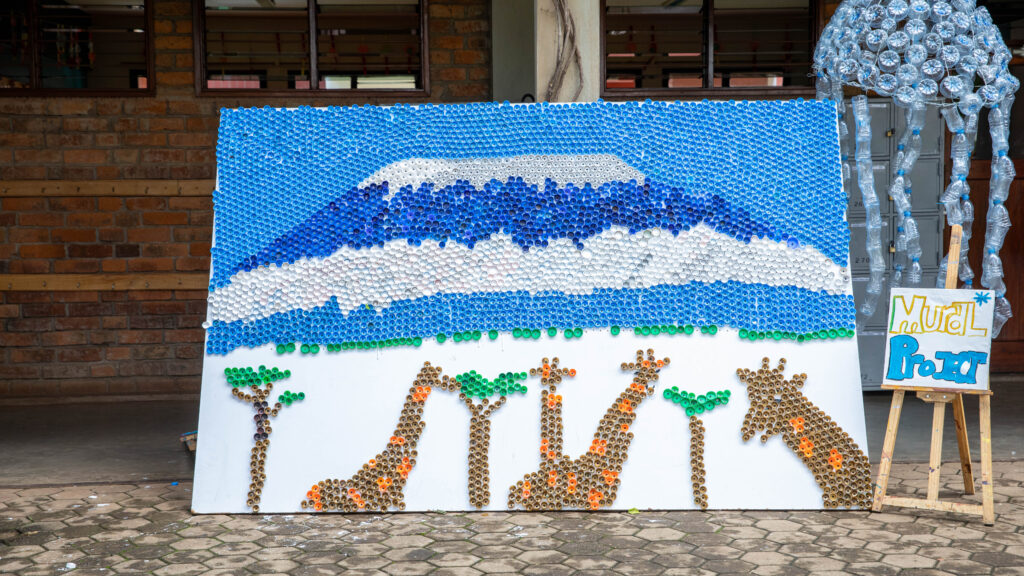
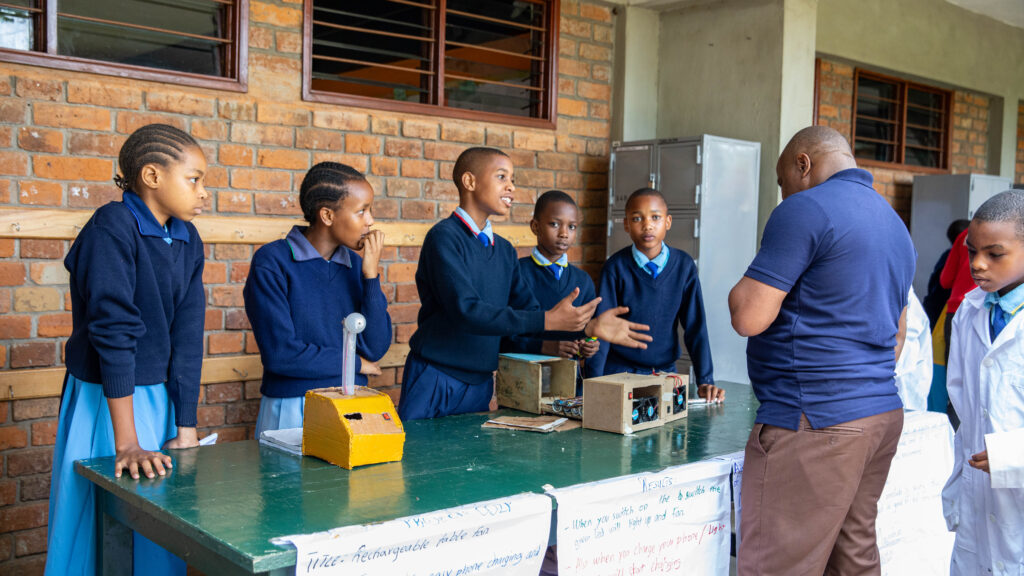
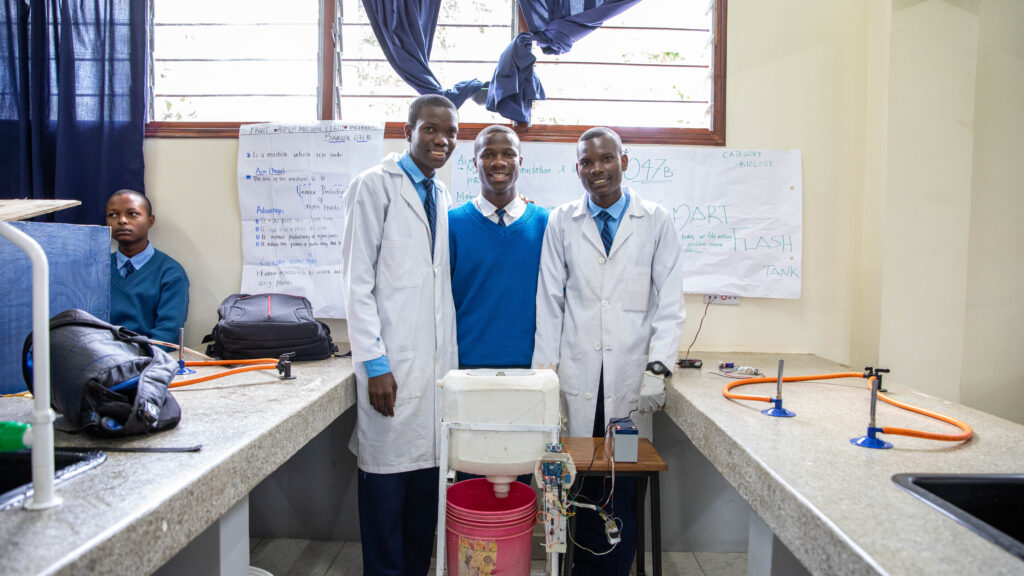

St Jude's has always been a place where young minds are nurtured and bold ideas are born. However, turning a passion into a sustainable business is no easy task - it requires practical skills, mentorship, and the right kind of support. To help bridge this gap, the school recently launched the Next Frontier Incubator and Small Grants Program, designed to help alumni transform their entrepreneurial dreams into reality.
The 20-week program, which kicked off in January, offers 25 alumni the opportunity to develop essential business skills through expert mentorship, tailored resources, and hands-on training in critical areas such as business planning, financial management, goal-setting, and legal compliance.
Program Specialist Neema explained that the initiative was established to help alumni with innovative business ideas transform them into successful ventures and build a strong foundation for long-term growth.
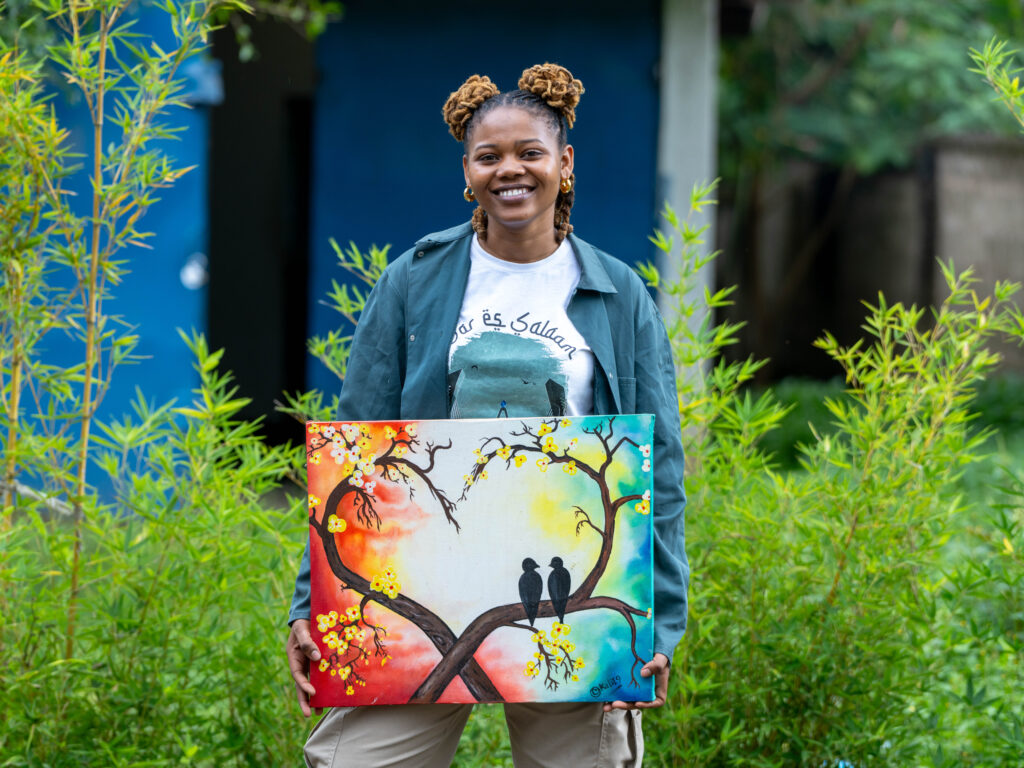
“We found that many alumni had incredible ideas but didn't know the next steps. They were caught between creative development and the practical aspects of business management. This program helps bridge that gap by offering the resources needed to turn these ideas into a viable business,” Neema says.
The inaugural group includes ideas from a range of industries, including art, manufacturing, construction, and transport. They each submitted a business proposal detailing their vision, goals, and the challenges their businesses aim to address, which formed the basis of their admission to the program.
“Many of these ideas aim to solve real-world problems and make a positive impact on people and the planet. Some are startups that, despite winning awards, are facing challenges in scaling, while others are still in the early stages of development and getting their ideas off the ground. The cohort meets twice a week for expert-led sessions and assignments to help them refine their goals, develop their mission statements, and map out their next steps,” Neema says.
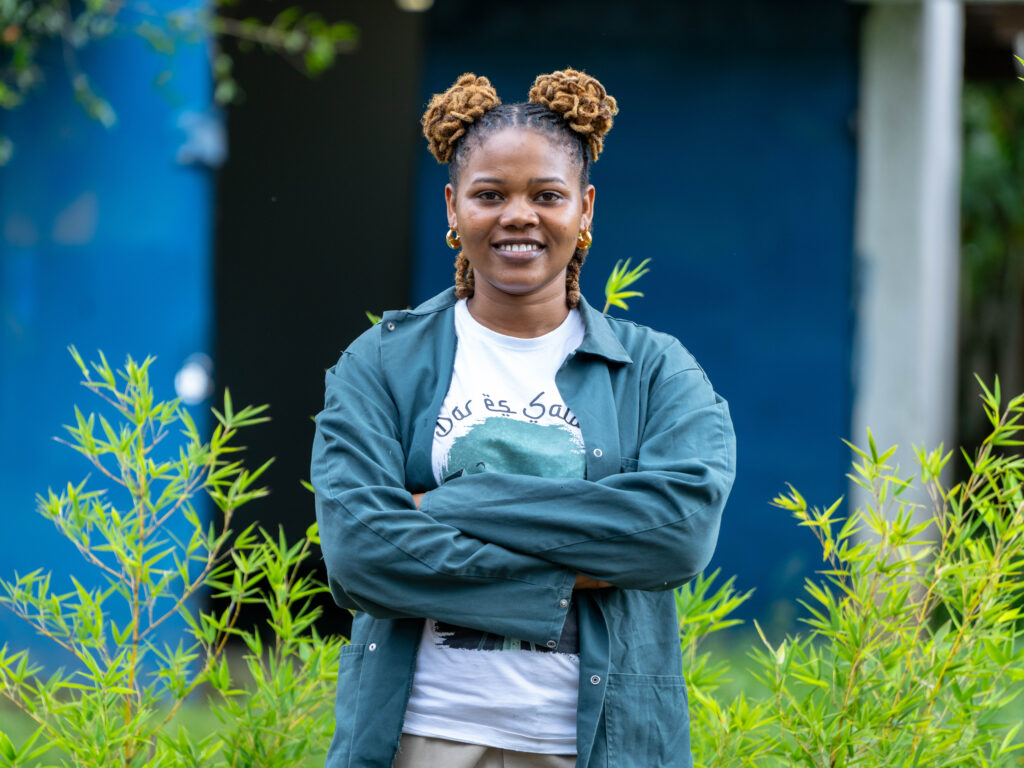
At the end of the program, the students will pitch their ideas to an external panel of experts who will assess their business models, scalability, and community impact. Successful pitches will receive grant funding up to US$5,000 to support key areas such as product development and marketing.
One alum, Queen, Class of 2021, said she jumped at the opportunity to be part of the program. After studying art and design in Dar es Salaam, she founded The Kids Hub, an art workshop offering creative classes in painting, jewellery making, and digital art for children and young adults in Arusha.
“I've always had a passion for art, and I wanted to create a space where young people could explore their creativity,” says Queen, who has a studio in the centre of Arusha where she runs her classes.
“Art is often overlooked in schools, so I wanted to provide a space where kids could develop their skills, express themselves, and sell their work. We've already held two classes, and the response has been incredible.”
Queen's ultimate goal is to expand The Kids Hub into a larger space where people of all ages can learn and appreciate art - a goal she feels is within reach thanks to the insights gained from the program.
“The Next Frontier Incubator and Small Grants Program has been a real eye-opener. It's hands-on and practical, and the sessions have given me so many tools to improve my business. I've learned how to manage stress, scale my business, and navigate the financial side. It's a complete package that has really set me up for success,” says Queen.
“I'm also learning so much from my fellow participants, as we all exchange advice and insights. My goal is to run regular classes and continue to grow the business, and by the end of this program, I'm confident I'll be able to achieve that.”
In addition to supporting the entrepreneurial endeavours of alumni, St Jude's has also launched a Pre-Incubator Program for current high school students. This extracurricular club serves as a stepping stone into the Next Frontier Incubator and Small Grants Program, offering students the chance to explore entrepreneurship as a potential career path from an early age.
“The Pre-Incubator Program provides students with the tools and support they need to develop their ideas and prepare for the full incubator program if they wish to pursue it professionally after graduation,” Neema explains.
“By introducing entrepreneurship at the high school level, we're encouraging students to see it as a viable career path, and empowering them to become innovators, problem-solvers, and leaders both within their communities and beyond.”
Every year, hundreds of new students enrol at St Jude's on full scholarships at the primary, lower- and upper-secondary levels across our three campuses. The scholarship application process is competitive and involves academic testing that considers the financial and social situation at home. Our Community Relations team oversees this entire process, with the help of the whole St Jude’s community. The team also handles student health and welfare, parent portfolio, and home visits.
"The students that attend St Jude's are from families who could not have otherwise afforded private school education," explains Philip, Community Relations Manager at St Jude's. "Providing free, quality education goes a long way in ensuring that children from such families have a future in which they thrive, effectively breaking the cycle of poverty."
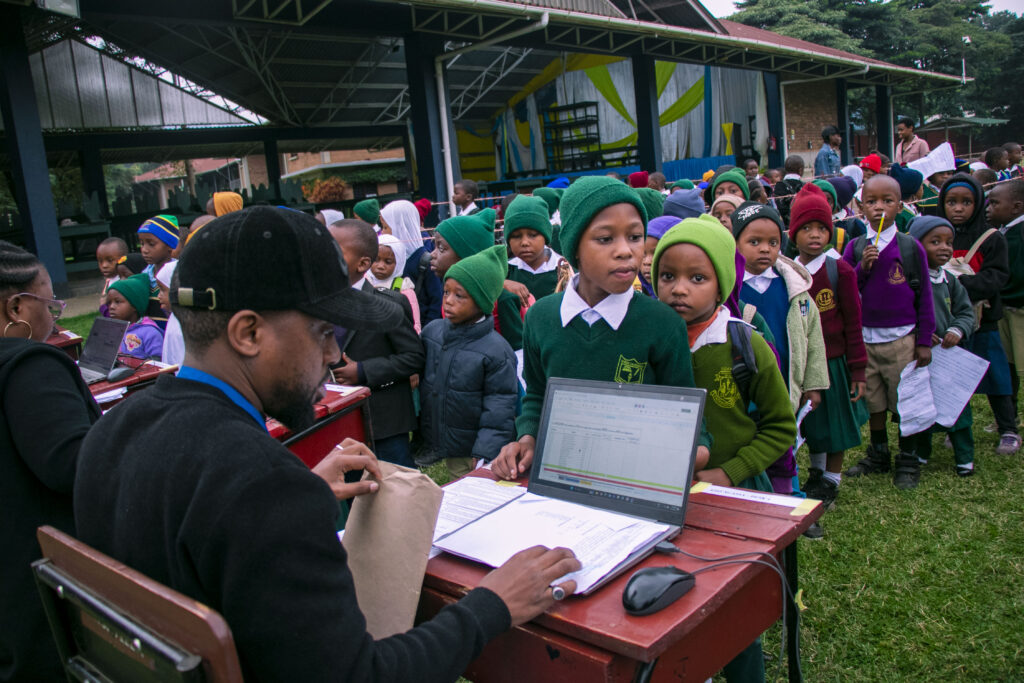
While free, quality education is a proven path out of poverty for our students' families, other challenges could prevent students from achieving their goals. According to St Jude's poverty assessment data, most, if not all, of our students' families do not have health insurance and never go for regular health check-ups. It is common for household members to visit a health centre or hospital only when they fall seriously ill or when home remedies fail. This lack of preventive care increases the risk of undiagnosed health complications that may go unnoticed for extended periods.
"That's why at St Jude's, we conduct annual health checks for all students, including newly enrolled and continuing students. A team of international and local medical professionals and volunteers spend two weeks at the school performing comprehensive health assessments. These checks provide recommendations that help us better understand our students' health needs and tailor our support systems accordingly," says Philip.
One significant intervention made possible by the health checks involved a student, Fatuma, a recent graduate of St Jude's Girls' Secondary School. During her initial health check, the medical team detected a hearing problem that her family had been unaware of. The St Jude's Health and Welfare team collaborated with her family to address the issue, allowing Fatuma to continue her studies freely.
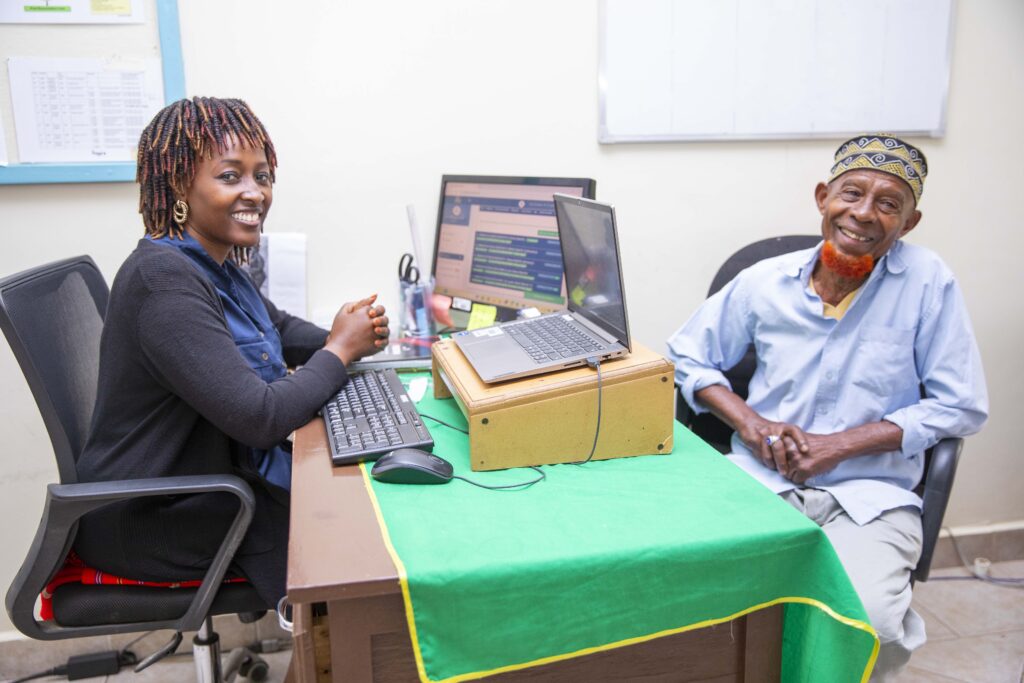
"Without the health checks, it's unlikely that we would have detected the problem and addressed it in time," reflects Fatuma's father, Abubakari, a single parent of three children. "Since my family does not have health insurance and never go for regular check-ups, these assessments were the only means for me to know what was wrong with my daughter and seek medical help."
Annually since 2010, St Jude's has been conducting health checks for its students. The program has evolved based on feedback from the school, the Health Check team, and knowledge of available health services in the region. With a shared understanding that healthy students learn more effectively, these health checks focus on identifying health and wellbeing issues that could impact students' ability to learn individually and collectively.
The Health Check team provides specific advice to parents regarding their children and general recommendations to the school based on observed health trends.
"As a school, we take proactive steps to support students who need special attention," says Gloria, Health and Welfare Officer at St Jude's. "These measures include dietary adjustments, regular sessions with the school counsellor, and other personalized interventions. My team works closely with parents to ensure students remain in peak health and that any health concerns are addressed promptly."
Beyond dedicated health and welfare programs, the school promotes positive student well-being through nutritious meals, physical education, extracurricular activities, a full-time school counsellor, and structured rest periods. A St Jude's scholarship goes beyond tuition and academic support—it ensures the success of future Tanzanian leaders through a truly holistic approach that prioritises education and well-being.
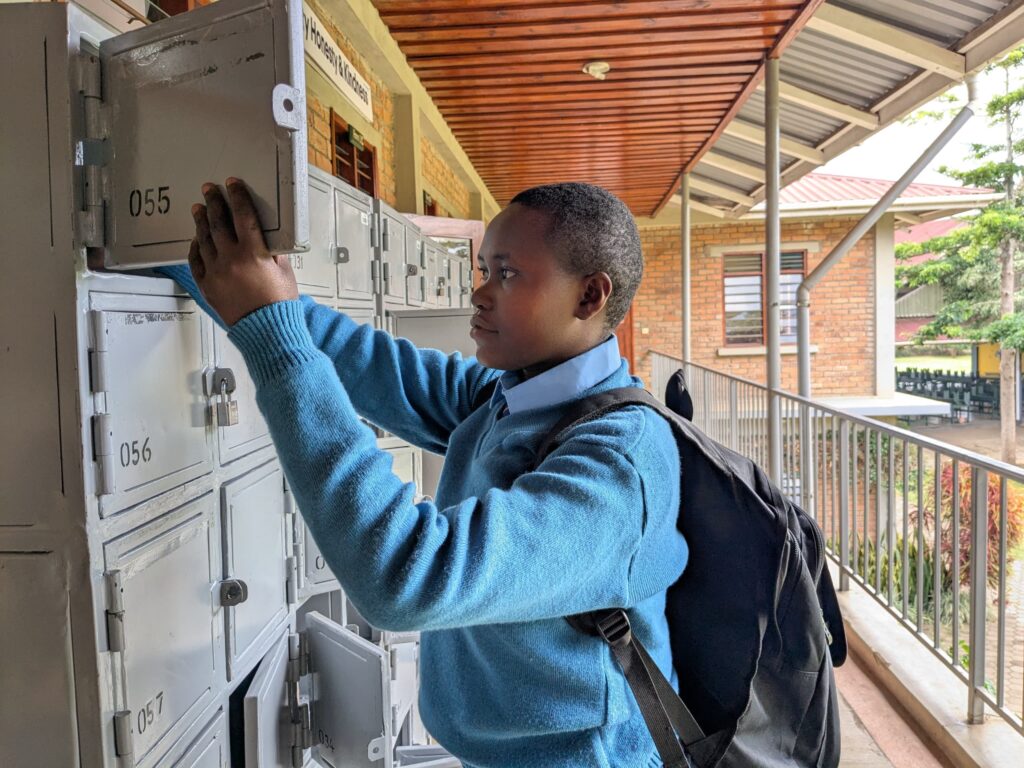
Before joining St Jude’s, 14-year-old Agripina’s day used to start at the crack of dawn. First, she checks on her elderly grandmother, cleans around the house, and tends to livestock. Afterward, she prepares her younger sister, and the pair would begin the 30-minute walk to school, often arriving early enough for Agripina to squeeze in about an hour of personal study before class.
"I have always maintained a strict daily schedule to balance my studies and chores at home," explains Agripina, one of the new students at St Jude's. "There was hardly enough time in the day to do everything so I had to get creative with my time," she adds.
For example, after school, Agripina stays a few more hours for personal studies and dedicates her free time on weekends to group discussions and additional studies. To make the most of her long commute, she would discuss lessons with schoolmates along the way. Her discipline, consistency, and hard work paid off as Agripina maintained the top position in her class throughout her primary school education.
In Tanzania, primary education is the first seven years of school, from Standard 1 to 7. At the end of Standard 7, students sit for a series of standardised national exams. Those who pass may be eligible to attend government school to continue with secondary education.
"If I made it to secondary school, I’d be the first in my family to do so," says Agripina. "But first, I had to pass the national examinations," she adds.
Agripina doubled down on her already tight schedule in preparation for her national exams, dedicating every moment of her free time to her studies. She would study by the fire while preparing family dinner, stay up late, and organise a small discussion group with classmates from the same neighbourhood. Her efforts eventually paid off, and Agripina passed her national examinations with remarkable results.
However, passing the Standard 7 national examination doesn't necessarily guarantee a spot in secondary school.
“Passing my Standard 7 exams was only the first step,” explains Agripina. “Next, I had to hope and wait for the government to allocate me to a school. This part is tricky because it’s completely out of my control,” she adds.
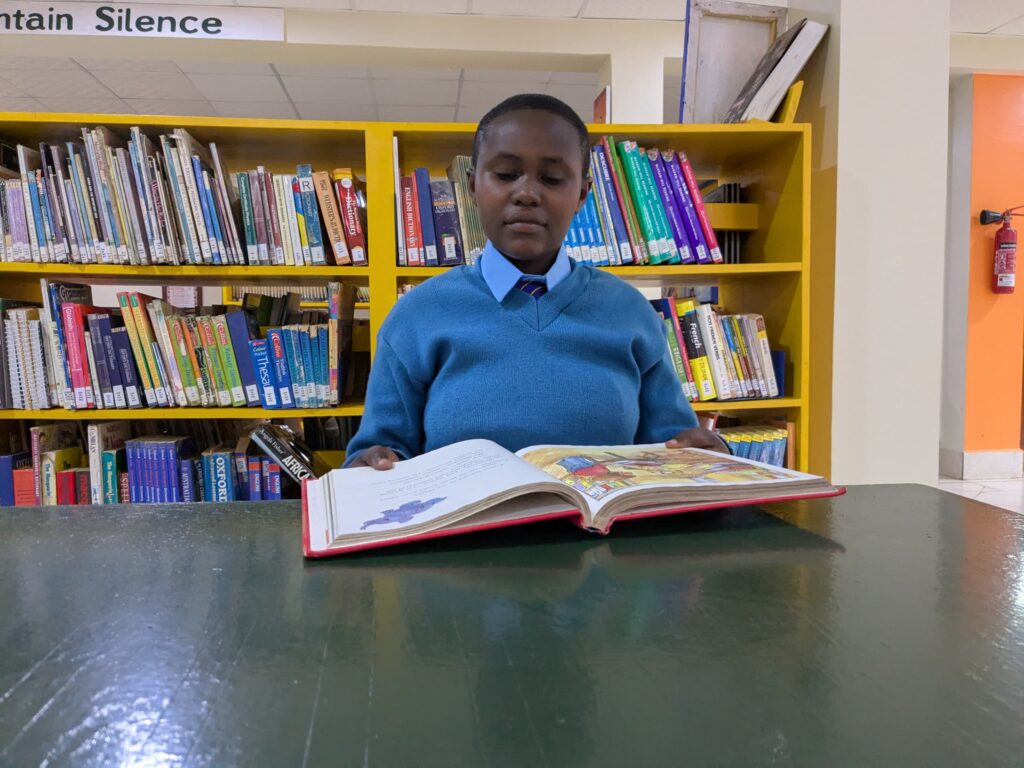
In Tanzania, government schools provide the most affordable education; they don’t charge school fees, but parents are expected to contribute to food, transport, stationery, uniforms, and other costs. Unfortunately, there aren’t enough secondary schools in Tanzania to match the growing number of primary school graduates. National data indicates only one secondary school for every four primary schools. It’s not uncommon for students to miss out on secondary education despite passing their exams due to the limited spots/places available.
Furthermore, secondary schools are often located far from students’ homes, making access even more challenging.
“I knew plenty of students, especially girls, who passed their exams but still didn’t make it to secondary school,” recalls Agripina. “It was scary to think that I could potentially end up in the same spot,” she adds.
Luckily for Agripina, she didn’t have to wait for the government's allocation. Her remarkable results caught the attention of St Jude’s, which promptly sent her an invitation to apply for a scholarship. In no time, she was on her way to one of St Jude’s centres to try her luck.
“It was quite an experience. There were so many students with their parents and guardians. St Jude’s took care of everything—transportation, food, and accommodation—since we had to spend the night and start the application process the following morning," she shares.
Agripina went through academic testing and excelled in all of them. Next came a pre-house check and document screening to determine her eligibility for the next steps. The last phase was a home visit by
St Jude’s staff for poverty assessment to determine whether the student’s family meets the school's scholarship criteria. This thorough process ensures that the most deserving students with exceptional academic potential make it through the scholarship program.
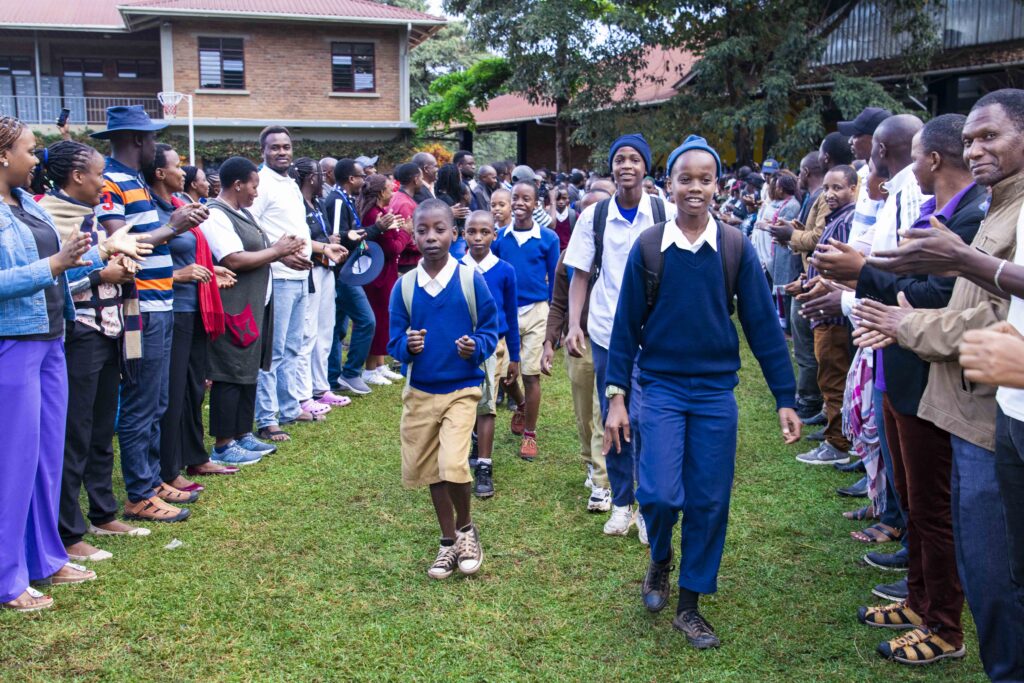
Out of over 2,000 students who applied for a scholarship at St Jude’s, Agripina was one of the 194 who eventually made it to the end.
“Joining St Jude’s makes all my hard work worth it,” she reflects. “I’ve only been here a few days, but I already love the school, the teachers, and my fellow students,” she adds happily.
Agripina aspires to become a doctor. Fittingly, she has joined St Jude’s Secondary Girls’ School, which boasts well-equipped science laboratories, excellent sports and academic programs, and a thriving science culture. With her discipline, determination, and access to St Jude’s resources, there’s no doubt she’ll achieve her dreams.

In Tanzania, the academic year for primary school runs parallel to the calendar year, starting in January and ending in December. Students enjoy a month-long holiday at the end of the year and return in January to begin a new academic year.
Primary education in Tanzania is the first seven years of school; starting in Standard 1, students graduate from primary school in Standard 7.
The first few weeks of January are usually filled with excitement as students transition to the next academic level and reunite with friends they haven’t seen in a while. We recently caught up with Grace, one of our primary school students, to hear about her recent holiday and her plans for the year ahead.
I enjoyed spending time with my family and playing with my friends.
When we visited my grandmother for Christmas, I met with my cousins and had lots of fun together! We also enjoyed delicious food and drinks.
Yes. I want to study hard so that I can become a soldier one day.
I helped my mum around the kitchen, and she showed me how to prepare some meals.
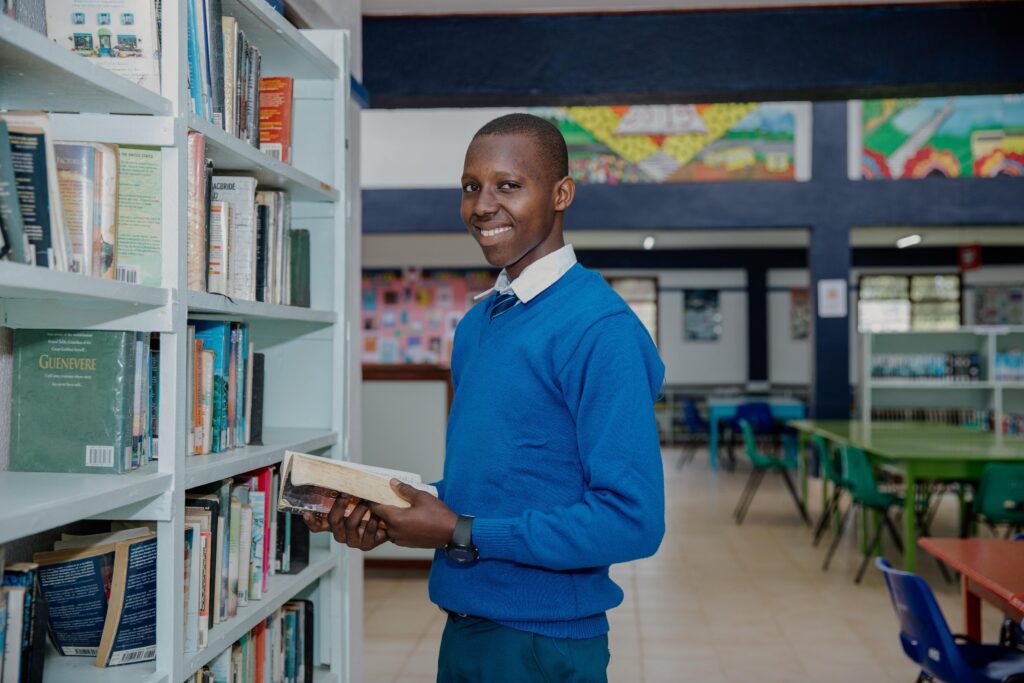
For four straight years, Jordan followed a tight schedule. He started his day at 4am, dedicating the next hour and a half to personal studies. By 6:20am, Jordan was ready to begin the 40-minute walk to school. He would return home around 6:30pm, spending an additional hour and a half after school in group discussions and revisions.
"The government school I attended didn't have enough boarding facilities for all students," explains Jordan. "Nevertheless, I had to do everything I could to pass my national examinations."
In Tanzania, there are two key stages to secondary schooling. The first four years of secondary school are called Ordinary Level (O Level) studies, from Form 1 to Form 4, and the final two years of secondary school are called Advanced Level (A Level), Forms 5 and 6. Students must sit for a series of standardised examinations organised by the government at the end of each stage. Only those that pass may continue onto the next level.
Jordan had to ace his Form 4 national examination to stand a chance of continuing with A Level studies. In 2023, close to 600,000 candidates sat for the exam. With only close to 1,000 A Level schools in the country, a student has to do exceedingly well in the exams to earn a spot in any of these schools.
"Two of my older siblings never made it to A Level," shares Jordan. "I have two younger siblings and my mother back at home. They were all rooting for me because I would be the first one in the family to do so," he adds passionately.
As Jordan approached his national examinations, his mother paid additional accommodation fees so that he could move into a boarding facility close to school. The support from his family and Jordan's hard work eventually paid off. He passed his national examinations with flying colours and was one of the top-performing students at his school!
"It was like a celebration when the results came out," reflects Jordan excitedly. "Everyone was so proud of me and it makes all the effort worth it."
Despite the impressive results, Jordan's path to A Level wasn't guaranteed. The shortage of secondary schools in Tanzania means that not every qualified graduate makes it to the next stage. The only way to get into a government secondary school is through an allocation by the government, which happens several months after the results are announced.
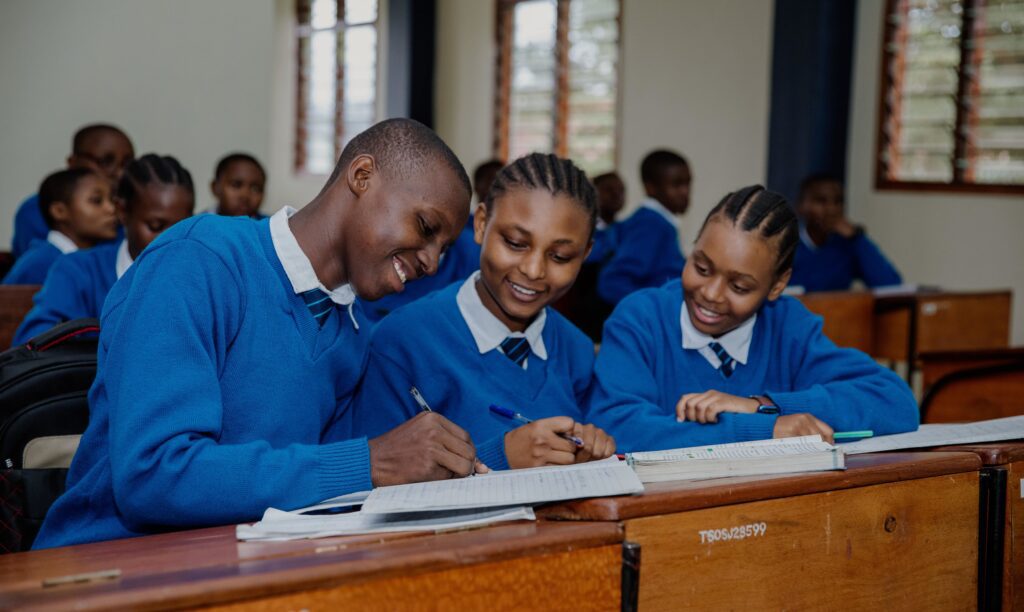
"Missing out on a government school would surely mean the end of the journey for me," says Jordan. "The only other option would be to join a private school, which we couldn't afford. I had done my part, now I had to wait and hope for the best," he adds.
Luckily for Jordan, he didn't need to wait long. His impressive academic results earned him an invitation to apply for an academic scholarship at St Jude's. Jordan jumped at the opportunity. He aced the academic tests and passed the rigorous poverty assessment checks to secure a spot at St Jude's. His strong academic prowess, underprivileged background, and strong character made him an ideal candidate for the scholarship.
"I have only been at St Jude's a few weeks, but it's already made a lasting impression on me. I'm now exploring my curiosity with computers and trying out different activities within the school," says Jordan, who hadn't used a computer before St Jude's.
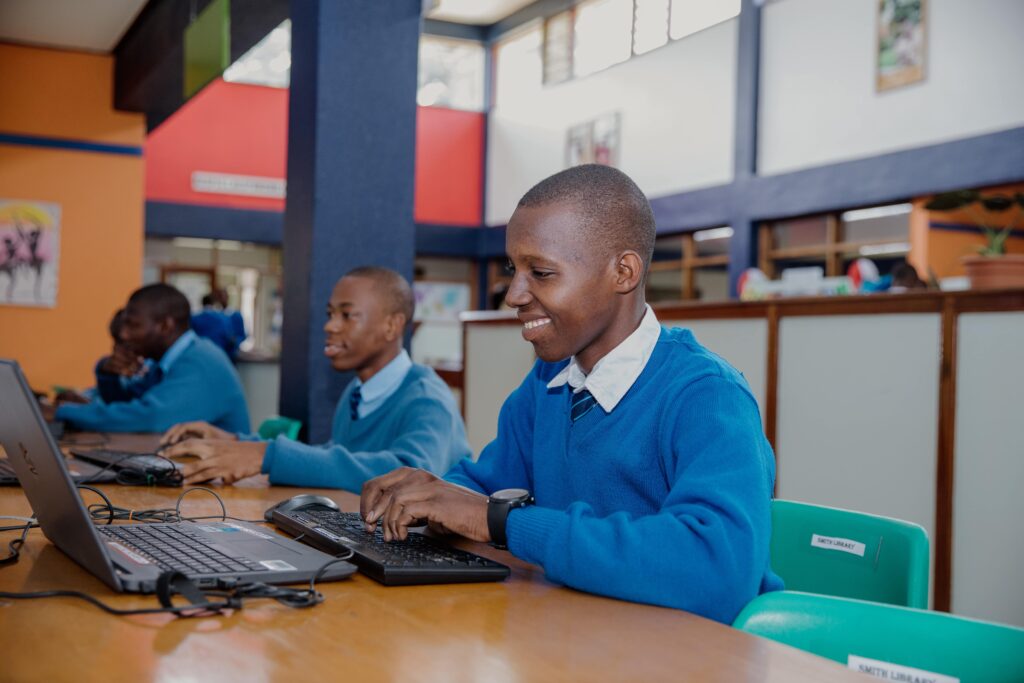
Jordan is pursuing physics, chemistry, and mathematics in his A Level studies and hopes to become an engineer someday. St Jude's holistic approach to education turns motivated students like Jordan into well-rounded individuals. Provided with a quality learning environment, strong academic program, and robust co- and extracurricular activities, students graduate from St Jude's better equipped to lift their families and communities out of poverty. With his hard work and determination, it's thrilling to imagine how much he'll accomplish in his next two years at St Jude's.